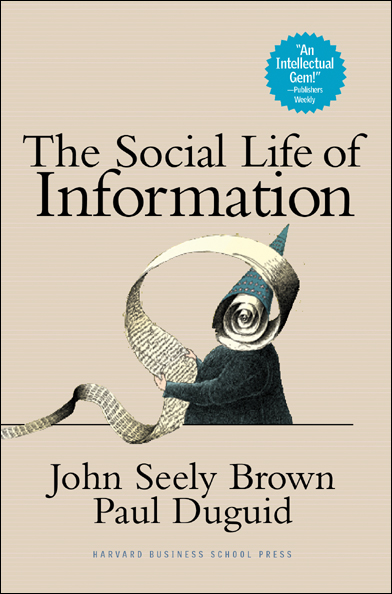I originally wrote this entry on October 9, 2004, and published it on blogs.sun.com.
Scottish Philosopher and Christian thinker, John MacMurray argued in his seminal work, The Self As Agent (1957), for the centrality of action to our existence. "Action," for MacMurray, "is choice."
Time, and indeed action, of which it is the form, cannot be object for a subject. It can only be experienced in action. In such experience of time, the characteristic structure is a dinstinction between past and future. When the agent moves, his action continues. At any point in this continuing movement he is aware of the distinction between past and future. The past is what has been done; the future what has not been done but remains to do. That part of the movement which is past is already actual, the part which is future is not actual but only possible. In general, therefore, the past is the field of actuality, the future the field of possibility. The present is simply the point of action . . .
In action, then, the Agent generates a past by actualizing a possibility. This 'generation', or 'bringing into existence', is pratical determination, and the actual is the determinate. To act, therefore, is to determine; and the Agent is the determiner . . . We may therefore define acting as determining the future. The past is then that which has been determined, and is, in consequence, completely determinate . ..
The Self As Agent (pp. 133-134)
What becomes to our propensity to act, i.e. to determine the future, when it comes to our activity within large, formal organizations?
Chester Barnard (The Functions of the Executive, 1938), writing at about the same period as MacMurray's philosophical musings sees "a need of action as a primary propensity and instinct" even when we are acting within organizations. The need for action extends beyond individuals to organizations (in which they have to organize themselves because of various limitations imposed on individuals in making choices through individual action).
. . . Correlative with this is the observation that enduring social contact, even when the object is exclusively social, seems generally impossible without activity. It will be generally noted that a purely passive or bovine kind of association among men is of short duration. They seem impelled to do something . . .
. . . Where the situation affects a number of persons simultaneously they are likely to do any sort of mad thing. The necessity for action where a group of persons is involved seems to be almost overwhelming. I think this necessity underlies such proverbs as 'Idle hands make mischief,' and I have no doubt that it may be the basis for a great deal of practice within armies.
The Functions of the Executive (pp. 117-118)
Organizations die if they cannot provide for purposeful and satisfying action of individuals, while guaranteeing a sense of choice-making which can only be authentic in local groupings.
In large organizations, the possibilities of participation increase with the greater possibilities offered for association and action. Returning to a concept of choice similar to MacMurray's, Barnard notes that this greater number of possibilities and also the conflict of obligtaions they accompany, "may induce a sort of paralysis of action through inability to make choice."
In short, we have a propensity to make a choice, to determine the future, through our actions, but in large organizations, such choice-making actions are often frustrated.
Situations that frustrate such choice-making and action-determintation, degrade our personalities and lead us to a state of being lost.
The activities of individuals necessarily take place within local immediate groups. The relation of a man to a large organization . . . is necessarily through those with whom he is in immediate contact. Social activities cannot be action at a distance . . . [This] justifies a statement made to me that comradeship is much more powerful than patriotism, etc., in the behavior of soldiers. The essential need of the individual is association, and that requires local activity or immediate interaction between individuals. Without it the man is lost. The willingness of men to endure onerous routine and dangerous tasks which they could avoid is explained by this necessity for action at all costs in order to maintain the sense of social integration.
The Functions of the Executive (119)
So, what is the upshot of all this philosophizing?
Action summarizes our being, and organization is often a necessity to take particular types of action. Local, (often informal) immediate groups within organizations function to limit and make more effective our action-choices whose frustration will put us in danger of becoming lost. We take on large, dangerous tasks not because of some large ideal but to ensure comradeship and local social cohesion.


